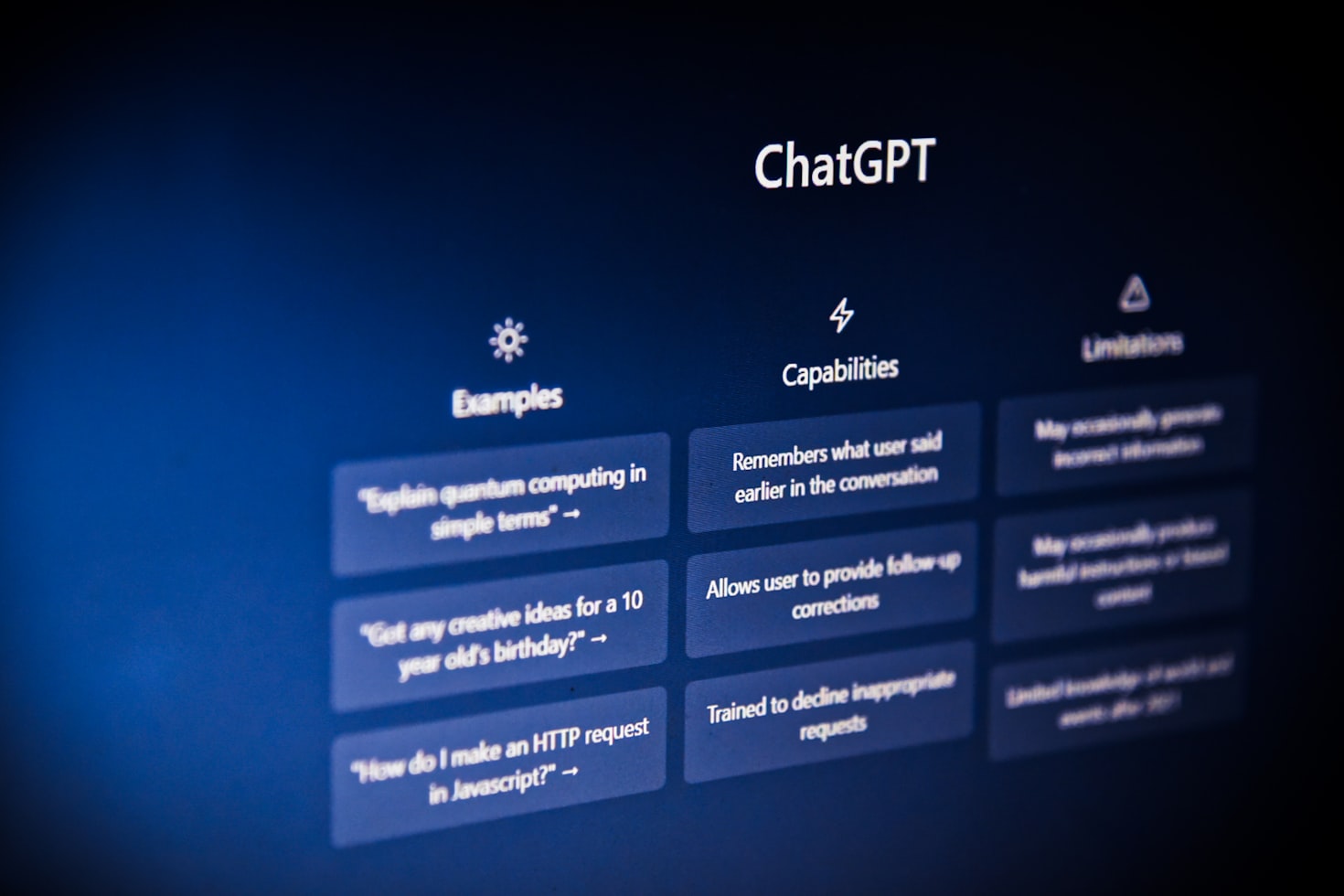As we step into 2024, the eCommerce landscape is rapidly evolving, with artificial intelligence (AI) playing a pivotal role in shaping its future. At the forefront of this technological revolution is ChatGPT, a cutting-edge tool that’s transforming how eCommerce brands operate. This article delves into the myriad ways ChatGPT can revolutionize your eCommerce brand, offering insights into its functionalities, applications, and the potential it holds for the future of digital commerce.

What is ChatGPT and How Does it Work?
ChatGPT, developed by OpenAI, is an advanced AI model designed to understand and generate human-like text. It’s a product of years of research and development in the field of natural language processing (NLP).
At its core, chatgot uses machine learning algorithms to analyze and respond to text inputs. It’s trained on a vast dataset, enabling it to understand context, generate coherent responses, and even mimic human conversational patterns.
ChatGPT vs. Search Engines
ChatGPT and search engines serve different purposes and offer distinct user experiences. While search engines provide a list of links that users have to navigate through to find relevant information, chartgpt offers direct answers and suggestions in a conversational manner. This makes ChatGPT a more interactive and personalized tool for users and businesses.
With search engines, users often have to sift through multiple search results to find the information they are looking for. This can be time-consuming and frustrating, especially when the desired information is buried deep within the search results. In contrast, chatgps provides direct answers to user queries, eliminating the need for users to click on multiple links and scan through web pages. This saves time and effort, allowing users to quickly access the information they need.
Moreover, ChatGPT’s conversational nature allows for a more personalized experience. Users can ask follow-up questions or seek clarification on specific topics, and ChatGPT will provide relevant responses. This level of interactivity enhances the user experience by tailoring the information to individual needs. Additionally, businesses can leverage ChatGPT to engage with customers in a more conversational manner, providing personalized recommendations or addressing specific queries. This can lead to improved customer satisfaction and increased conversion rates.
ChatGPT in eCommerce: Enhancing Business Operations

ChatGPT is revolutionizing eCommerce operations in several ways. Here are the top five:
Creating Product Descriptions
Creating product descriptions can be a time-consuming and resource-intensive task for businesses. However, ChatGPT can streamline this process by generating unique and compelling product descriptions. This AI-powered tool can save businesses valuable time and resources.
Traditionally, businesses have to allocate significant resources to create engaging product descriptions that effectively communicate the features, benefits, and unique selling points of their products. This involves brainstorming ideas, conducting market research, and crafting persuasive copy. With cchatgpt, businesses can input relevant information about their products, such as specifications, key features, and target audience, and the AI model can generate descriptive and engaging product descriptions. This eliminates the need for businesses to spend hours crafting each description from scratch.
Generating Product Recommendations
Generating product recommendations is a crucial aspect of modern e-commerce. With the ability to analyze customer preferences, AI-powered systems can delve into vast amounts of data to understand individual shopping habits, past purchases, and browsing history. By leveraging this information, these systems can provide personalized product suggestions that align with the unique tastes and needs of each customer.
Through advanced algorithms and machine learning techniques, these recommendation systems can identify patterns and correlations in customer behavior. This allows them to make accurate predictions about the products that customers are likely to be interested in. By considering factors such as previous purchases, items added to the cart, and even demographic information, these systems can generate tailored recommendations that cater to the specific preferences of each customer.
Crafting Social Media Content
Crafting social media content is a vital aspect of digital marketing in today’s interconnected world. With the assistance of ChatGPT, businesses can create compelling and relevant content that resonates with their target audience on various social media platforms. By leveraging the power of AI, ChatGPT can generate creative ideas, write captivating captions, and even suggest appropriate hashtags to enhance the visibility and reach of social media posts.
One of the key advantages of using ChatGPT for crafting social media content is its ability to understand and adapt to the preferences and interests of the target audience. By analyzing data from previous posts, customer interactions, and market trends, cahatgpt can generate content that is tailored to the specific needs and desires of the intended audience. This ensures that the content is engaging, relatable, and capable of capturing the attention of social media users.

Developing Email Marketing Campaigns
Developing effective email marketing campaigns is crucial for businesses to engage with their audience, nurture leads, and drive conversions. With the help of ChatGPT, businesses can design targeted and personalized email marketing strategies that resonate with their subscribers and deliver relevant content directly to their inboxes. By leveraging AI technology, ChatGPT can analyze customer data, segment the audience, and generate compelling email content that is tailored to the specific needs and interests of each subscriber.
Using ChatGPT for developing email marketing campaigns is its ability to create personalized and dynamic content. By analyzing customer behavior, purchase history, and preferences, ChatGPT can generate customized email content that speaks directly to the individual recipient. This level of personalization helps businesses establish a deeper connection with their subscribers, increase open rates, and drive higher engagement and conversions.
Improving Customer Service
Improving customer service is a top priority for businesses as it directly impacts customer satisfaction and loyalty. With the help of ChatGPT, businesses can enhance their customer service by providing instant and accurate responses to customer queries. ChatGPT’s AI-powered technology enables businesses to automate their customer support processes, ensuring that customers receive timely assistance and solutions to their problems.
By integrating ChatGPT into their customer service systems, businesses can offer round-the-clock support, eliminating the need for customers to wait for human agents to be available. ChatGPT can handle a wide range of common queries and provide instant responses, saving both time and effort for customers. Its ability to understand natural language and context allows it to accurately interpret customer inquiries and provide relevant information or solutions. This not only improves the overall customer experience but also reduces the workload on human agents, allowing them to focus on more complex or specialized customer issues.

The Limitations and Challenges of ChatGPT in eCommerce
The use of ChatGPT in eCommerce comes with certain limitations and challenges that businesses need to be aware of. One of the main concerns is the potential lack of content originality.
ChatGPT generates responses based on patterns and data it has been trained on, which means there is a possibility of repetitive or generic answers. This can lead to a less personalized experience for customers, especially when dealing with complex or unique queries. To overcome this limitation, businesses should ensure that human oversight is in place to review and enhance the AI-generated responses, adding a touch of creativity and personalization to make the customer interactions more engaging and tailored.
Another challenge is the accuracy of the data used to train ChatGPT. The AI model relies heavily on the quality and diversity of the data it has been exposed to during training. If the training data is biased or incomplete, it can result in inaccurate or misleading responses. Businesses must carefully curate and validate their training data to ensure that ChatGPT provides reliable information to customers.
Future of ChatGPT in eCommerce
The future of ChatGPT in eCommerce holds great potential for businesses. As AI technology continues to advance, ChatGPT is expected to become more sophisticated and capable of providing highly personalized and efficient services to customers. With advancements in natural language processing and machine learning, ChatGPT will be able to understand and respond to customer queries with greater accuracy and context sensitivity. This will result in improved customer satisfaction and engagement, as customers will receive more relevant and tailored responses to their specific needs.
Conclusion
ChatGPT is a game-changer for eCommerce brands. Its ability to enhance operations, engage customers, and streamline marketing efforts makes it an invaluable asset. As we look ahead, the integration of ChatGPT in eCommerce strategies will be crucial for businesses aiming to stay competitive and innovative.
Elevate your eCommerce brand with ProductScope AI! Transform your product photos into stunning visuals and optimize your Amazon listings effortlessly. With 100 free photos and no credit card required, start creating Instagram-ready scenes and gain unique insights to skyrocket your sales. Don’t wait, start for free and experience the magic of AI-driven eCommerce success today!
Sign Up for ProductScope AI Today!
FAQs Section
How Can ChatGPT Improve Customer Service in E-Commerce?
ChatGPT enhances e-commerce customer service by providing instant, accurate responses, handling common queries efficiently, and offering personalized assistance.
What Role Does ChatGPT Play in E-Commerce Marketing?
In e-commerce marketing, ChatGPT generates creative content, personalized email campaigns, and engaging social media posts, targeting specific customer segments effectively.
Can ChatGPT Help in Managing E-Commerce Inventory?
ChatGPT assists in analyzing customer data and trends for informed inventory decisions, predicting demand, and providing insights for better inventory management in e-commerce.
How Does ChatGPT Contribute to E-Commerce Sales Growth?
ChatGPT boosts e-commerce sales by creating personalized product recommendations, enhancing user experience, and improving conversion rates through effective communication and marketing strategies.
What Are the Limitations of Using ChatGPT in E-Commerce?
The limitations of ChatGPT in e-commerce include potential data inaccuracies, reliance on existing information, and the need for human oversight for content relevance and accuracy.
Can ChatGPT Replace Human Workers in E-Commerce?
ChatGPT automates tasks but cannot fully replace human workers in e-commerce. It augments human efforts, especially in customer service and content creation, but requires human oversight for complex decisions.
How Can ChatGPT Enhance E-Commerce Websites?
ChatGPT enhances e-commerce websites by generating SEO-friendly product descriptions, offering chatbot services, and creating engaging content for improved user experience and website engagement.
Is ChatGPT Cost-Effective for Small E-Commerce Businesses?
For small e-commerce businesses, ChatGPT is cost-effective as it automates tasks like customer service and content creation, reducing labor costs and increasing efficiency.
How Does ChatGPT Ensure Data Security in E-Commerce?
ChatGPT follows data security protocols set by its developers. E-commerce businesses must ensure compliance with data protection regulations and use ChatGPT responsibly for customer data security.

